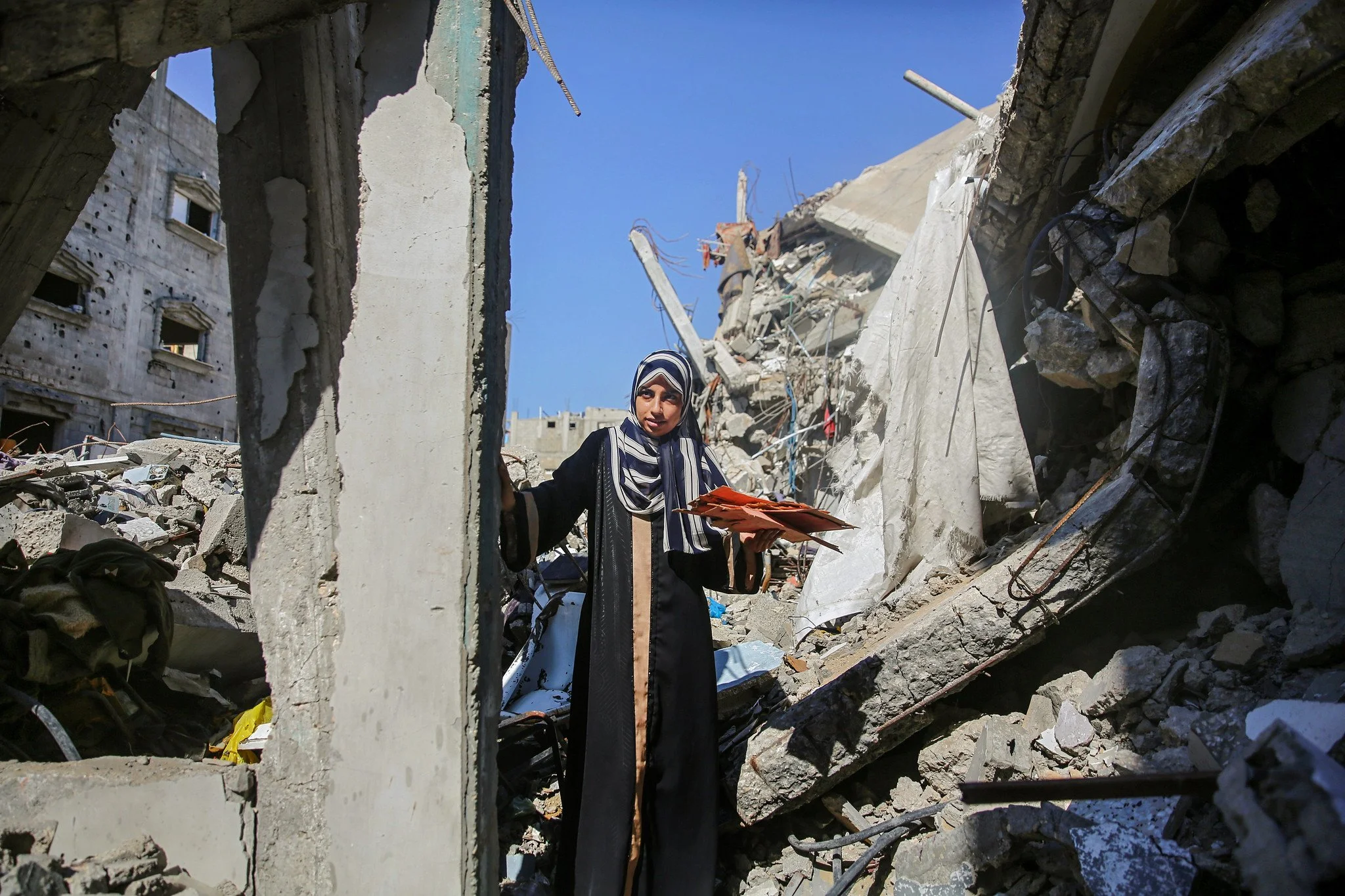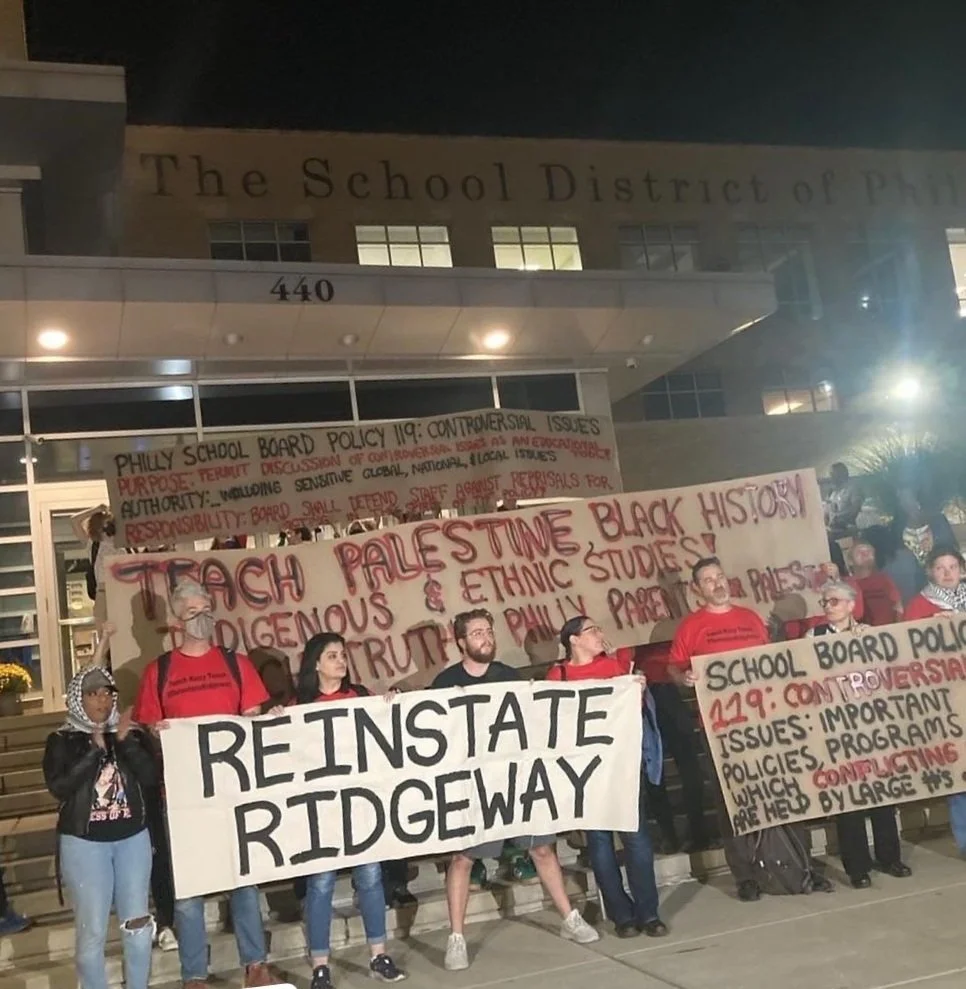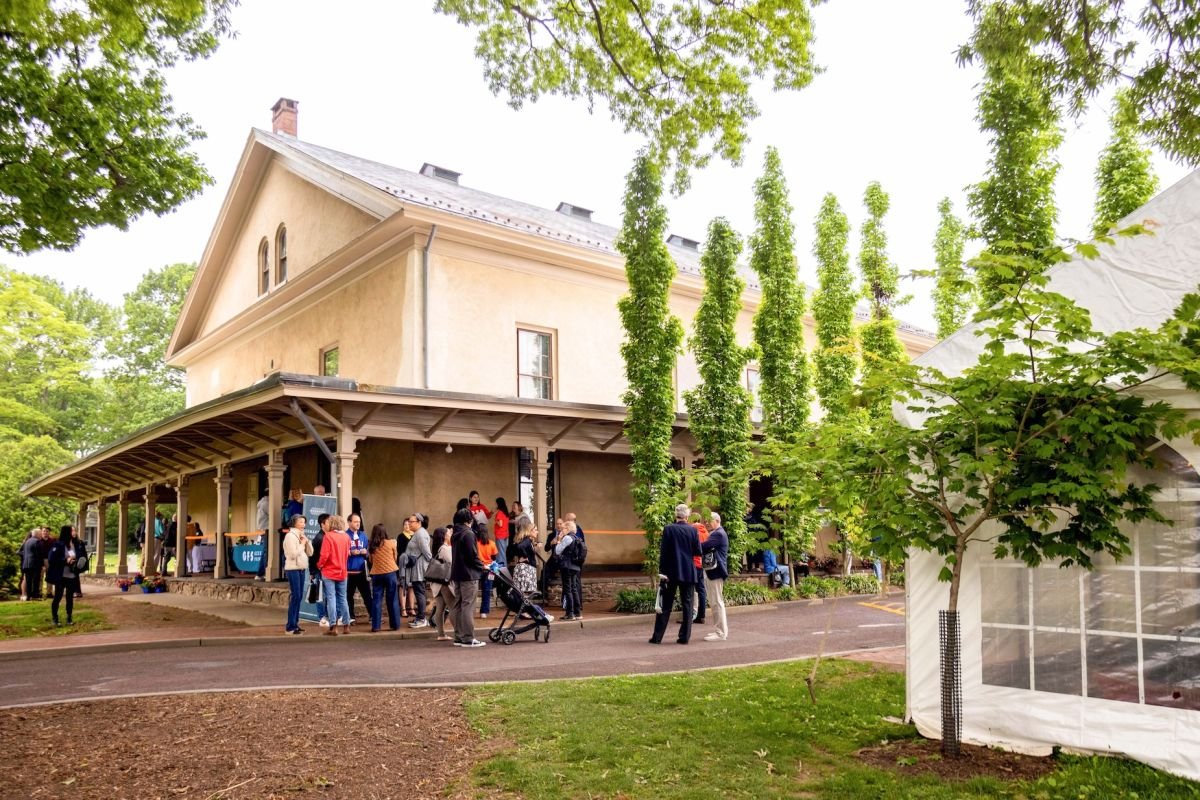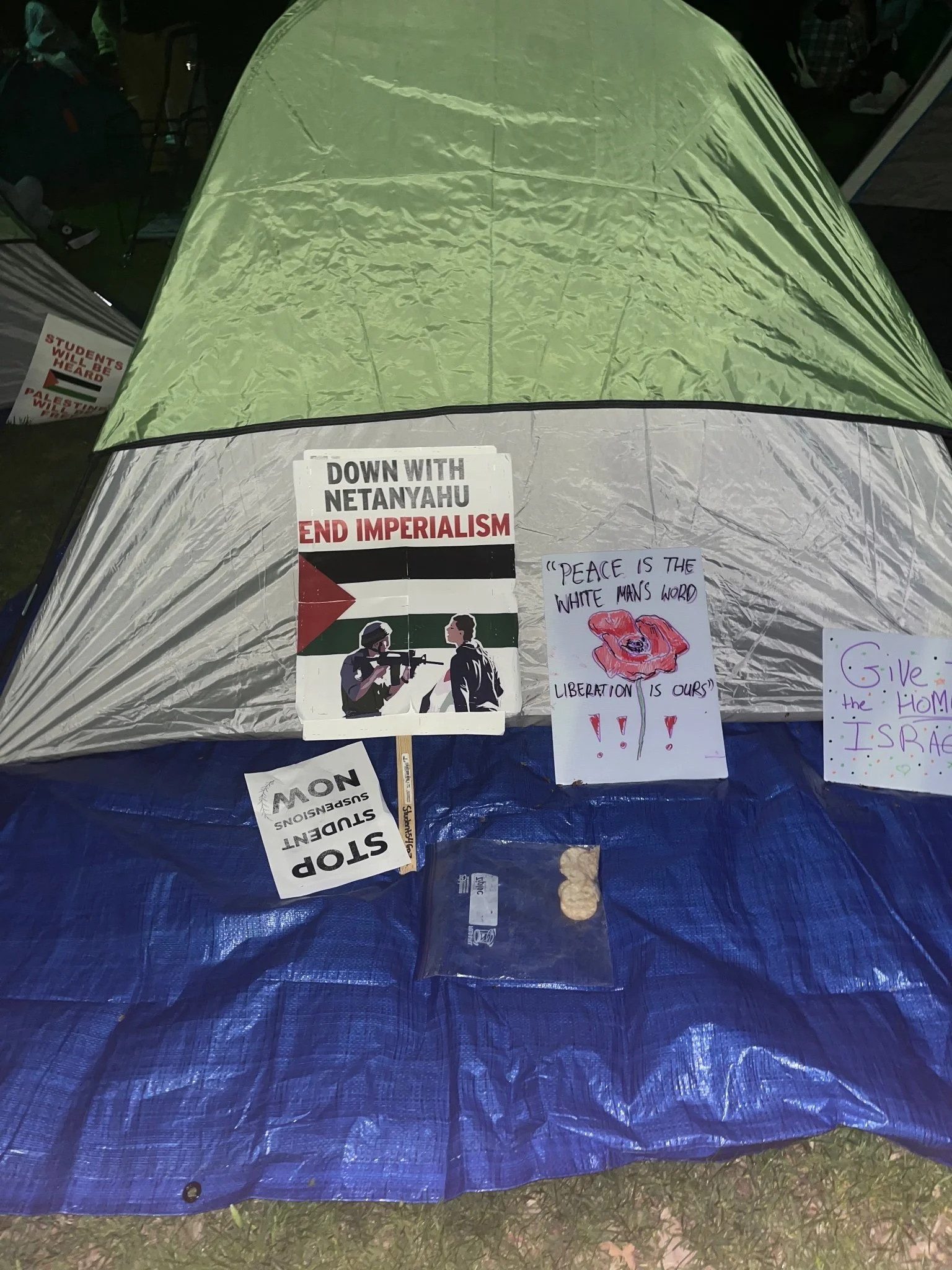Jewish Educators Denounce Philadelphia Schools for Censorship on Palestine
By Lauren Abunassar
December 30, 2024
Editorial note: To protect the anonymity of two sources in this article, who feared retaliation from their employers, we’ve identified them using pseudonyms.
As Israel’s genocide in Gaza continues, so does the fight to teach Palestine in U.S. educational institutions. In Philadelphia, educators at both the primary school and collegiate levels have been speaking out against Palestine censorship, which they say pervades the city’s academic systems. A subset of this diverse and intersectional community are anti-Zionist Jewish educators who have stepped forward to denounce the way that pro-Israel advocacy groups are weaponizing Judaism in an effort to suppress Palestinian advocacy. Specifically, these educators say that for over a year now, groups like StandWithUs, the Deborah Project, and the Anti-Defamation League have attempted to suppress free speech by arguing that efforts to raise awareness of the genocide in schools will only fuel anti-Semitism. Anti-Zionist Jewish educators staunchly disagree.
“I think it’s useful and important to disrupt the false equating of Judaism and Zionism,” one Philadelphia school librarian, Hannah Mermelstein, told Al-Bustan News. “I’ve been surprised by how personally I’ve felt that need for the Jewish anti-Zionist community [during Israel’s genocide in Gaza].”
Mermelstein is one of several anti-Zionist Jewish educators with whom Al-Bustan News spoke who has faced punitive action and censorship as a result of her efforts to speak out about the genocide. Mermelstein was an employee of Germantown Friends School (GFS), a Quaker PreK-12 school in Germantown. GFS became the subject of fierce debate in May when the Philadelphia Inquirer reported on the administration taking down a ‘Ceasefire Now’ message near the school, launching accusations that the administration is not upholding the Quaker commitment to nonviolence. An open letter sent to the school in April signed by over 500 parents, alumni, and faculty, accused the administration of taking a negligent “neutral” stance on Israel-Palestine at best, and an Israel-leaning stance at worst. The letter insists the school’s actions since October 7th have “read as anti-Palestinian, Islamophobic, and racist.”
Kholoud Al Gourani, 28, is one of millions of Palestinians currently struggling to survive the genocide in Gaza. Photo credit: UN Women/Suleiman Hajji
Mermelstein told Al-Bustan News, “The way that the mainstream non-Palestinian, non-Jewish people in power have decided to just define what Judaism is has really affected me more than I would have anticipated.” Beyond this, she struggled to watch the typically progressive and peace-loving tenets that GFS regularly embraces fall to the wayside when it comes to issues of Palestine. She was particularly disturbed when the school canceled a long-scheduled author visit from Jamilah Thompkins-Bigelow, an award-winning Muslim American children’s book author based in Germantown.
Despite not writing any books with overtly political messaging — instead focusing on themes that uplift Muslim identity and address bullying — several parents complained about Thompkins-Bigelow’s visit because of social media posts she made denouncing the killing of Palestinian children in Gaza. School administration canceled Thompkins-Bigelow’s visit after receiving these complaints, a decision that made little sense to Mermelstein and deeply upset her.
Northeast High School teacher Keziah Ridgeway, who taught students about Palestine, was suspended from teaching after unsubstantiated complaints of anti-Semitism were lodged against her. Photo courtesy: Jewish Voice for Peace Philly.
Hoping to offer her own perspective as an anti-Zionist Jew at GFS, Mermelstein made several efforts to reach out to the school community and administration to start a collaborative conversation on how to navigate the ongoing genocide. In October, she sent an email through the school faculty list-serv inviting colleagues to talk and explaining her own nuanced background as an American Jew who grew up in a liberal Zionist household only to become a staunch anti-Zionist following her extensive travels between Israel and the West Bank. “I want to offer myself (personally, not representing the library) as a resource for those who are looking for more context about what's happening in Israel/Palestine right now, either for your own understanding or to navigate conversations that may be coming up in the classroom,” the email read. School administration responded by informing Mermelstein that she was no longer allowed to use faculty email lists at all.
In February, Mermelstein led a non-school affiliated discussion group on Israel Palestine that was disrupted by pro-Israel parents who verbally attacked faculty and staff whom were present at the event. Following the presentation, Mermelstein was also bombarded with emails from another GFS pro-Israel faculty member who invited her to a film screening about the rape of Israelis by Hamas. When Mermelstein sought assistance from the school’s Diversity, Equity, and Inclusion (DEI) Office for help on how to get the emails to stop, she was told an investigation would follow but received no additional follow-up.
“I think it is important to mention that one of the demands of the Zionist parents since October has been that GFS increase teaching of the Holocaust and of anti-Semitism within curriculum and other programming,” Mermelstein said. “The knee-jerk response was ‘Yes, of course’ and the school took immediate and not very well thought out steps to add things to the curriculum, have workshops and professional development. When people ask for changes that the admin does not want to implement, however, they use the excuse that the Quaker process takes a long time. But with this, it was immediate.”
Mermelstein lamented that the school’s rush to provide increased Holocaust and anti-Semitism teaching material was problematic and only further conflated anti-Zionism and anti-Semitism while also cultivating a surface-level understanding of Jewish identity. “To watch our school essentially say [in professional development trainings] that Jewish identity is basically only about being a victim was really hard for me… This was all part of the general trend of suddenly treating anti-Semitism as the most important issue to deal with, while completely ignoring what's happening in Gaza.”
Pictured above is Germantown Friends School, where librarian Hannah Mermelstein resigned from her position, after a long battle with the school over its unwillingness to allow free speech on Palestine on campus.
Eventually, Mermelstein sent a letter to school leadership describing the weaponization of anti-Semitism throughout the country and explaining her decision to resign from her position. “Here at GFS, every message you have put out, every stance you have taken publicly, has reinforced the anti-Semitic idea that all Jews are Zionists, and that to criticize Israel is harmful to Jewish people,” Mermelstein wrote. “GFS is not unique in falling into this trap, but the fact that you continue to take the stance that believing in the sanctity of Palestinian life is anti-Semitic is just beyond upsetting to me. The fact that my particular Jewish identity is not welcome here (because of the way you define Judaism) is one of the primary reasons I have made the painful decision to leave this community at the end of this school year.”
As Mermelstein slowly shared news of her resignation with students and colleagues, she was heartened to receive what she described as “secretly supportive” messages from some colleagues and even former students who appreciated her courage. Her experience fighting with the school even inspired her to lead a delegation to Palestine this past August with Rabbis for Ceasefire and Christians for Ceasefire. Mermelstein noted that though her experience with GFS was frustrating and saddening, it was also “clarifying,” reminding her how much she wants to find a position where integrity is centered and prioritized.
“In this past year, the way that the leadership of GFS has interpreted the [Quaker principles, known as] Peace Testimony, has been ‘let’s not make waves within our community… Peace means we all have to get along and not talk about anything that might be a conflict,’” Mermelstein said. Still, she acknowledged that as flawed as this approach is, it’s not unique to GFS. “I don’t think it would be better for me anywhere else,” she said.
Indeed, other Philadelphia educators have denounced how Israel-Palestine is being handled in local schools. In June, three Philadelphia middle school teachers filed a federal complaint when they lost their jobs after advocating for Palestinian students. In April, pro-Palestine faculty members at Penn filed a lawsuit against the university in an effort to protect the privacy of pro-Palestine faculty and students. And since the genocide in Gaza began, Philadelphia community members have continued to pressure the Philadelphia School District over the harsh punitive measures faced by pro-Palestine teachers in both public and private schools across the city.
Pictured above is Philadelphia’s Baldi Middle School. In June 2024, three of its teachers filed a federal complaint with the United States Department of Education, Office for Civil Rights (OCR) after facing severe disciplinary action for their support of Palestinian students. Photo credit: GreatPhillySchools.
One private school employee, “Edie,” who would only speak to Al-Bustan News on condition of anonymity for fear of retaliation by her employer, said that many teachers in her school had expressed a desire to engage with the administration on how to handle the genocide in Gaza in their classrooms. A Jewish-American herself, Edie explained, “Initially, [school staff] were just put off and told ‘we’ll think about it.’ And then nothing happened. And the minute one teacher offered to share resources internally with other teachers, there was a crackdown.” Employees were told all materials needed to be vetted through the school in advance and that nothing could be used for “political activity.”
“Even parents who were advocating for some kind of action were put off multiple times. It seemed to me that the school was just trying to run out the clock on the school year and hoping the genocide would go away or we would just forget about it,” Edie said. “In my opinion the administration represents a failure in moral leadership.”
Ultimately, Edie said she was sure this stance of both avoidance and active silencing will negatively impact future students who will want to know where their schools were when a genocide was unfolding. She continued, “I think that what’s happened in my own school is really representative of all institutions large and small that have completely failed us. It’s been made very clear that the interests of donors, and the interests of the powerful are going to be prioritized over [Palestinian rights, freedom and liberation].”
The consequences of these failures will be far-reaching, according to Edie. Many teachers, she fears, will be chased out of their roles for refusing to abandon their own feelings of moral obligation.
Palestinian American Philadelphia school teacher “Sylvia,” would only speak to Al-Bustan News on condition of anonymity for fear of being blacklisted from future teaching jobs. Sylvia left her role at her school after seven years as a result of the culture of silence surrounding Israel-Palestine. Sylvia said, “I found myself unable to even do the work I had done every year in my classroom of just sharing about my identity as a Palestinian American, sharing about my family… Reading picture books that highlight Palestinian experience, for example. Suddenly, I can’t do that because there’s no way to talk about Palestinian identity without talking about Israeli settler colonial violence.”
She went on to explain how much Palestinian censorship and the dangerous conflation of anti-Zionism and anti-Semitism must be combated by a diverse community. “What’s clear is that what’s needed is Palestinian solidarity across identities,” Sylvia said. “The greater the diversity of people speaking out about why they’re anti-Zionist and making connections between Israel settler violence and state violence and anti-Palestinian racism and violence, the stronger the movement to end Israel settler colonial violence will be.”
In her school, Sylvia was especially pained when an Arab American student in her class was clearly suffering. Sylvia felt unable to center the student’s needs due to the culture of censorship and silencing pervading the school. “I’m an educator. I think it’s really important that educators take clear stances on moral issues. So, if a child says, ‘it is okay for a government to bomb children,’ educators should be able to say ‘no.’”
In her school, Sylvia said, teachers had been encouraged to embrace clear social justice education in relation to the police killings of unarmed Black Americans or policies that separated undocumented families. “There were a number of political policy issues that were really moral issues on which educators were expected to take a clear stance…” Palestine, however, became an exception at the school.
“The fact that my very identity was politicized in a way that I couldn’t speak about who I was in the classroom, that was untenable to me,” Sylvia said. She resigned from her position as a result.
The struggles these teachers faced are pervading educators in local universities as well.
American Jewish educator Harry Russell grew up in Philadelphia in a Zionist household. He detailed his experience working at the University of Pennsylvania. Russell received an M.S.Ed. in Intercultural Communication from Penn in 2021 and then went to work with Penn’s Netter Center soon afterwards. There, he worked in community engagement — partnering with West Philadelphia schools to advance environmental education and help with after school and summer programming.
While Penn alum Harry Russell worked as an educator at Penn’s Netter Center, he became frustrated with the administration’s treatment of Penn students in solidarity with Palestine, some of whom were forcibly disbanded from the encampment that they built on campus in solidarity with Gaza when police in riot gear arrested 33 of them. Photo credit: Huda Fakhreddine.
As he became aware of Penn’s crackdown on pro-Palestine protesters, as well as its deeply flawed handling of the Palestine Writes Literature Festival, he reflected on his own education on Israel-Palestine.
He first traveled to Israel and the West Bank in high school and college. “That experience [of meeting Palestinians for the first time], was when I fully began to reject Zionism and felt a responsibility to contribute to Palestinian liberation and to use my privilege in a way that would be in support of that,” Russell told Al-Bustan News.
In Israel, when he was 19, he was even violently arrested after partaking in a demonstration for Palestine outside of an Israeli prison, protesting the administrative detention of Palestinians. Russell was held in custody for a day and a half. When he returned to the U.S., he quickly got involved with different Students for Justice in Palestine and Jewish Voice for Peace initiatives. He began to study political science, Arabic, and Middle Eastern Studies — all of which fueled his desire to pursue human rights’ work that served marginalized communities.
Russell was deeply disturbed by Penn’s active targeting of pro-Palestine students and faculty. When a Penn undergraduate with whom he worked — an international student — was suspended for participating in a pro-Palestine encampment, she was left homeless. That was the final straw.
In January 2024, Penn Faculty for Justice in Palestine held a demonstration on campus, pictured above. Three faculty members filed a lawsuit against the University in an attempt to prevent it from complying with a U.S. congressional committee’s demands to hand over confidential documents on its pro-Palestine faculty and students. Credit: Joe Piette
Russell admitted to leaving an angry voicemail, which included curse words, for the president of Penn, thinking no one would ever listen to it. It was a passionate rebuke of the university’s handling of Israel-Palestine and student protest efforts. Still, he believed that as an alum and a concerned Philadelphian, he had a right to express his concerns. However, he was soon informed that the university was launching an investigation into him, placing him on immediate mandatory leave in the interim.
What followed was a relatively quick two-and-a-half-week investigation that entailed interviewing Russell’s supervisor and that supervisor’s supervisor. Though Russell had strong recommendations and testaments to his work, he was ultimately terminated. Though he considered pursuing legal action, he was so exhausted and disillusioned by the whole process, he ultimately focused his efforts on finding new work. “I just didn’t want to center my story when there are worse things happening to the people of Gaza and all the victims of Israeli apartheid and genocide,” he said.
Though he expresses regret at his use of language and how angry his tone was in the voicemail, he is also left confused as to why the school’s response was so immediate and so punitive given the support his colleagues and faculty offered, testifying to the good work Russell had done. “I don’t think any amount of grace was given to me,” he said. “I don’t know if it’s because it is this issue and because of the timing and all the pressure the university feels it’s under because of its donors and the need to weed people like me out… But even with all the great things I’d done, this one strike was it.”
Russell’s experience, like other educators’, underscores the deeply unsettling confusion community members are facing when it comes to the silencing of Palestine in educational spaces. Why, even in some of the most liberal and progressive settings, has Palestine emerged as a ceiling those progressive values cannot push through? Why such Palestinian exceptionalism? It’s a question plaguing educators and students outside of Philadelphia as well.
In June of this year, dozens of New York City Public School teachers, students, parents, the New York Civil Liberties Union, the Asian American Legal Defense and Education Fund, and the Council on American-Islamic Relations sent a letter to the New York City Public School chancellor denouncing suppression of speech and lack of protection for Palestinians and MENA students and educators. In April, Washington D.C. students filed a lawsuit against their high school for enforcing censorship by prohibiting pro-Palestinian events. In November 2023, Brandeis University ceased recognition of the Brandeis chapter of the National Students for Justice in Palestine, alleging their support of a terrorist organization.
As these fights continue, it’s important to reflect on how a culture of silence in educational institutions in the face of genocide will impact educators, community members, and ultimately students. It’s a question teachers like Sylvia will grapple with for some time to come. “What is the silence teaching Arab and Muslim children?” she told Al-Bustan News. “What is that silence teaching children about the value of Arab and Muslim lives?”
***
Lauren Abunassar is a Palestinian American writer and journalist. A Media Fellow at Al-Bustan News, she holds an MFA from the Iowa Writers’ Workshop and an MA in journalism from NYU. Her first book Coriolis was published as winner of the 2023 Etel Adnan Poetry Prize.






